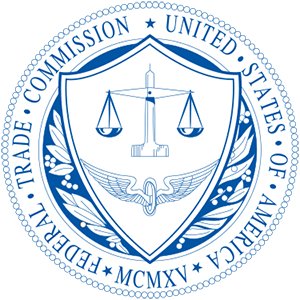
The Federal Trade Commission (FTC) has settled a complaint with Sunday Riley skin care, after the cosmetics brand was charged with writing positive reviews for its products on the Sephora website without identifying their source.
In its complaint, the FTC alleged that, between November 2015 and August 2017, company managers—including its namesake chief executive officer—wrote glowing reviews of its products on the Sephora.com website, using fake accounts to hide their identity, and encouraged employees to do the same.
According to the complaint, Sephora had begun removing some of the Riley reviews, as it recognized that they were coming from Riley’s IP address. As a result, Riley encouraged employees to use a virtual private network (VPN) to hide their location and identity, it said.
The FTC investigation stems from a whistleblower complaint originally posted on Reddit, which included a company email urging employees reviews to write fake reviews.
“I would encourage you to create profiles ASAP and write a couple reviews on makeup, hair or nail product to build a profile history,” the email said. “Please made sure to follow the guidelines for VPN…so the reviews don’t get traced back to our IP address.”
It continued: “If you notice someone saying things like I didn’t like ‘x’ about [Riley products], write a review that says the opposite. The power of reviews is mighty, people look to what others are saying to persuade them and answer potential questions they have.”
According to the FTC, Riley herself encouraged employees to register three identities on Sephora, adding, “[i]f you see a negative review—DISLIKE it. After enough dislikes, it is removed. This directly translates to sales!”
The company was charged with two violations: “making false or misleading claims that the fake reviews reflected the opinions of ordinary users of the products” and “deceptively failing to disclose that the reviews were written by Ms. Riley or her employees.”
The FTC’s guidelines for endorsements can be seen here.
The Sunday Riley company, while neither admitting nor denying the allegations in the complaint, agreed in a consent order to not “misrepresent” the status of anyone endorsing its product; to “clearly and conspicuously” disclose any material connection between the company and any person endorsing its product; and to instruct employees to do the same.
Two commissioners declined to endorse the settlement, saying its wasn’t strong enough to stop the problems of fake reviews.
“Today’s proposed settlement includes no redress, no disgorgement of ill-gotten gains, no notice to consumers, and no admission of wrongdoing,” wrote commissioners Rohit Chopra and Rebecca Kelly Slaughter. “The proposed settlement is unlikely to deter other would-be wrongdoers. Consider the cost-benefit analysis that a firm might undertake in considering whether to engage in review fraud. The potential benefits are substantial: higher ratings, more buzz, better positioning relative to competitors, and higher sales. The direct costs of generating reviews are minimal, certainly far less expensive than traditional advertising.”
This settlement “sends the wrong message to the marketplace,” they wrote. “Dishonest firms may come to conclude that posting fake reviews is a viable strategy, given the proposed outcome here.”
This isn’t the first time the FTC has taken action against fake reviews: In February, it fined a nutrition company for allegedly writing fake Amazon reviews.
(Image courtesy of the Federal Trade Commission)
- Subscribe to the JCK News Daily
- Subscribe to the JCK Special Report
- Follow JCK on Instagram: @jckmagazine
- Follow JCK on X: @jckmagazine
- Follow JCK on Facebook: @jckmagazine